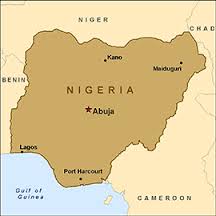The Nigerian Government has received US$250 million in credit from the International Development Association to increase its efforts to increase access to water supply services and to improve the financial and management viability of existing water utilities.
The credit, which was approved by the World Bank supports the Third National Urban Water Sector Reform Project and responds to the Nigerian government’s goal of developing more effective mechanisms for social service delivery, particularly water service, as a means to address inequities in income and opportunities. According to World Bank Task Team Leader for this project, Hassan Madu Kida, the many activities funded by the project will contribute to improving Nigeria’s progress towards meeting its Millennium Development Goal for access to improved water supply service.The funds will benefit approximately two million people, targeting the poor urban population living in the state capitals and their surroundings. They will be used to rehabilitate and build water delivery infrastructure and institutional systems which are needed to expand access to water supply services in selected cities. A portion of the project is performance based and will include incentives for improving the performance of the water supply institutions in the three states of Bauchi, Ekiti, and Rivers.
A second project component will provide technical and financial assistance to state governments and water utilities in Kano, Gombe, Benue, Jigawa, Ondo, Abia, Bayelsa, Anambra, and Plateau to help prepare them for future large water supply investments. The Government’s Federal Ministry of Water Resources, tasked with providing sustainable access to safe and sufficient water to all Nigerians, will also benefit from strengthened capacity to monitor and benchmark the water sector’s performance and accordingly, increased accountability from the states for their performance. “Today’s project builds on past experience which has shown that building water infrastructure without strengthening the capacity of the institutions responsible for managing water supply to the targeted areas does not lead to sustainable results”, said Marie Françoise Marie-Nelly, World Bank Country Director for Nigeria. She added, “We therefore hope that the new strategy which puts more emphasis on this integrated approach will contribute to l improve the health and economic well-being of the country’s poorest and more vulnerable particularly women and girls who spend a lot of time fetching water.






